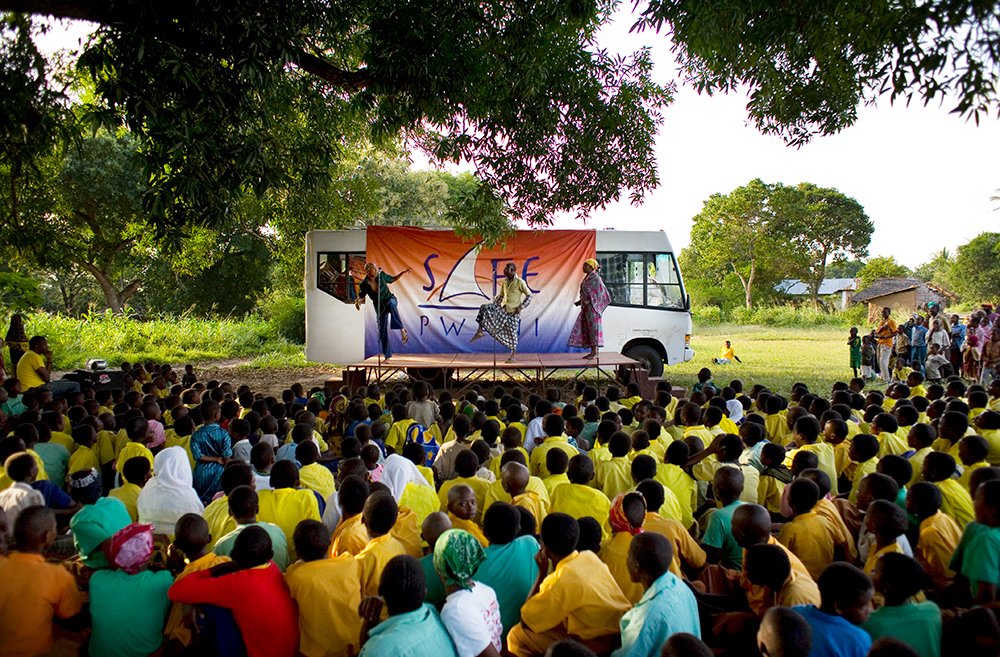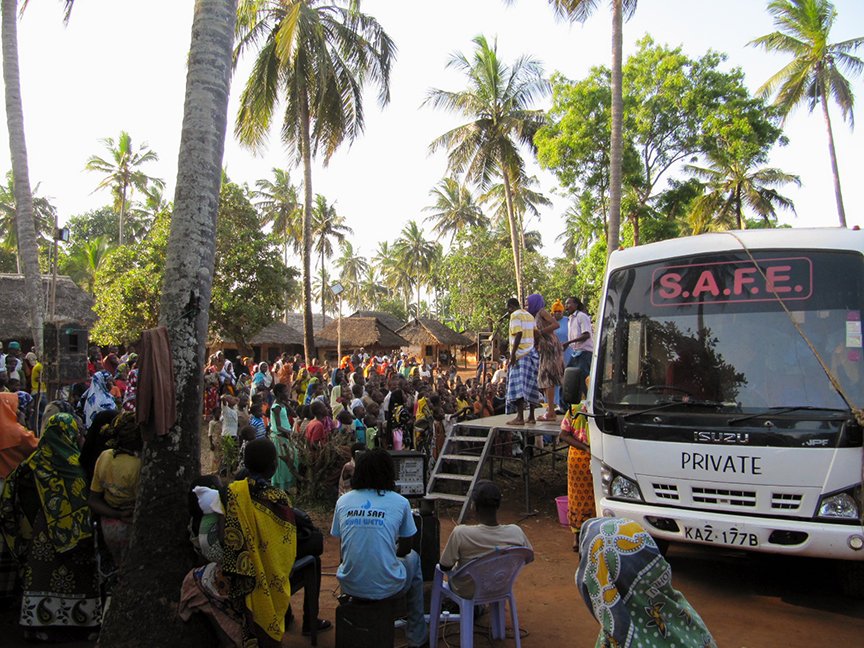Countering Violent Extremism (CVE)
Religious discrimination, political manipulation, tribal injustices, the fallout from violent election campaigns, and many other factors have led to deep divisions and tensions that bubble under the surface in Kenya. The exploitation of these issues leaves youth vulnerable to manipulation and possible radicalisation. At the Kenyan Coast, this radicalisation of young people is affecting every aspect of community life.

S.A.F.E.’s CVE project counters the narrative set by extremist groups, and those who seek to create instability, helping young people resist extremism and look for peaceful ways to address their grievances. The project also seeks to build community resilience to radicalisation; both through empowering community members to reach out to vulnerable youth, and creating stronger connections between the youth and the security services.
To empower young people to come forward and talk about their issues, S.A.F.E. adapted the highly powerful intervention of forum theatre (Theatre of the Oppressed), a participatory form of theatre, to create a forum film. This story tells the fictional story of a young man from the coast who becomes radicalised. Without intervention from his family, the film ends with him committing a murder. The film then becomes a documentary, as the cast performs the same story to real audiences around Mombasa. The forum element to the performance allows community members to come on stage to make different decisions for the key characters surrounding the young man. By intervening at strategic points during the play, they provide the audience with a vocabulary to approach this volatile issue, and in the process create a more positive ending to the play.
This performance resonated strongly with youth at the Coast, who recognised this story as their own. S.A.F.E. screen Watatu extensively in Mombasa, Kilifi, and Lamu counties. Initial screenings are carried out with entire communities to create a dialogue about why the young people are being radicalised as well as how to recognise the signs that a young person is being radicalised and help them.

Follow up Focus Group Discussions (FGD) are then held with youth who are at risk of radicalisation.
Using Watatu as a launchpad for the discussion, the team provides a safe space for these young people to air their grievances and be open about the real and perceived injustices that they face. The spaces allow young people to move through their anger and work together to come up with positive solutions to the challenges they face.
The youth from the FGDs then join S.A.F.E. and members of the security services in Bridge Building Meetings. Here, both groups discuss the challenges that they face when interacting with the other. Together these two groups come up with ideas about how they can improve their relationship and work together to tackle insecurity within their community.
S.A.F.E. supports youth groups formed though the Watatu Project in order for them to build their skills and capacity, as well as to grow and reach more at-risk youth. Through this initiative, S.A.F.E. provides peer education and drama training, as well as support for income-generating activities.